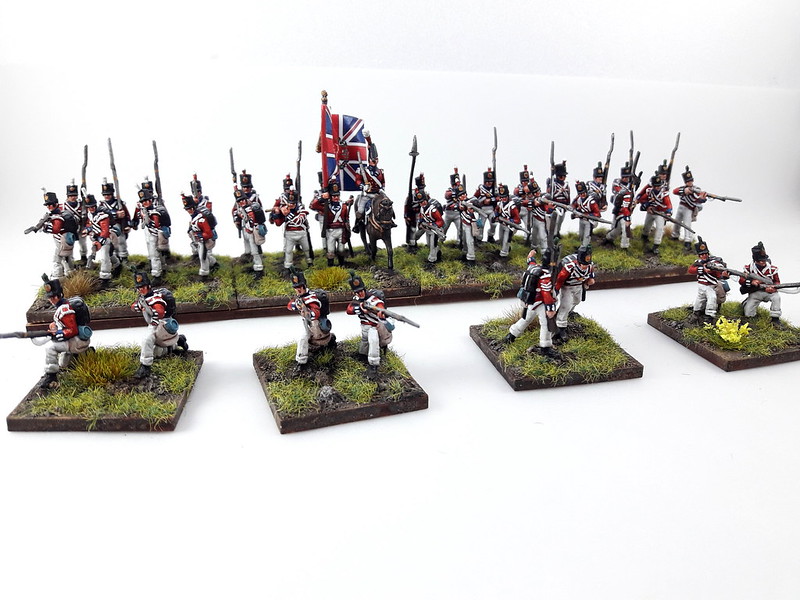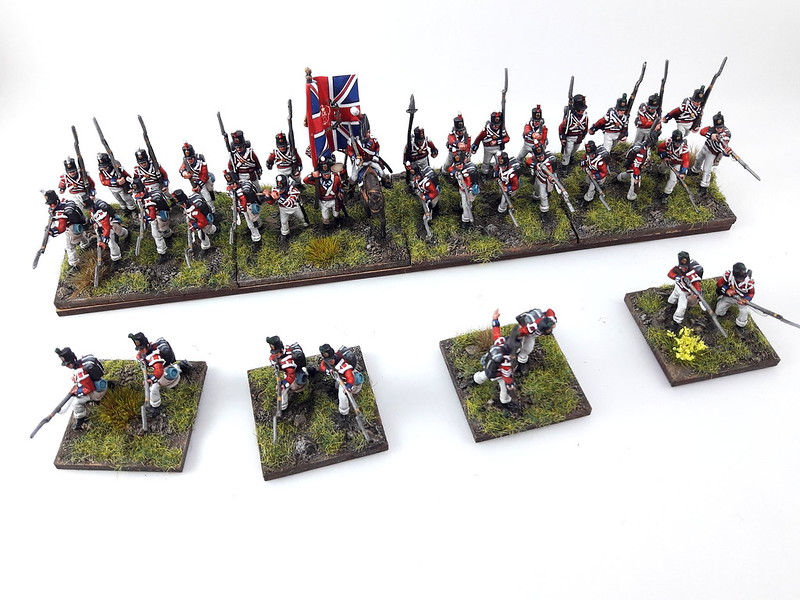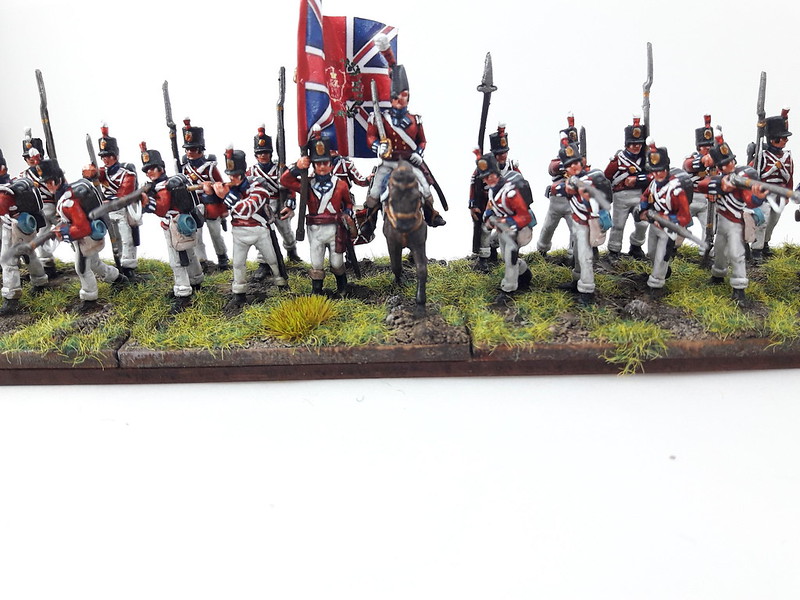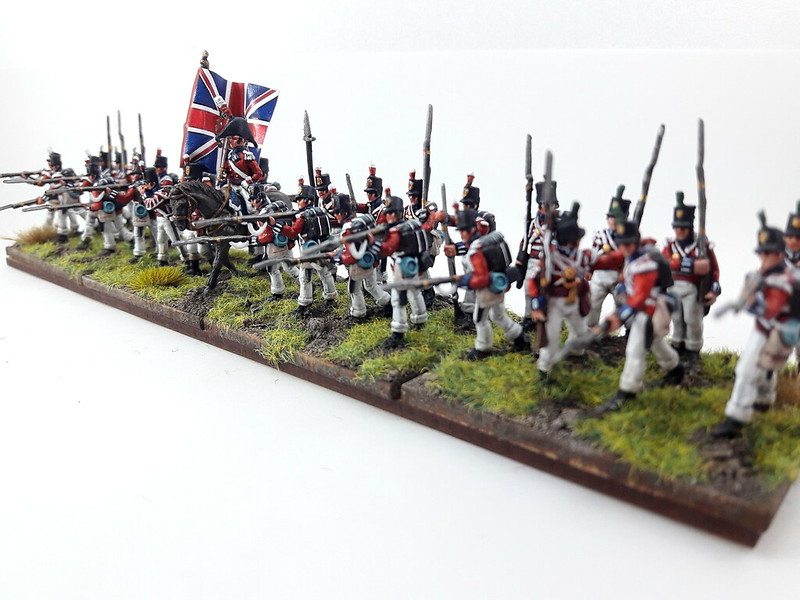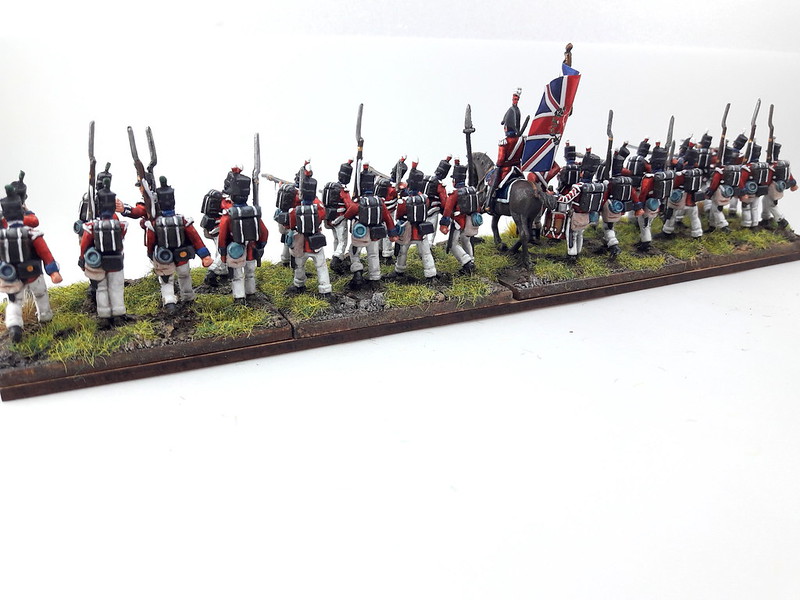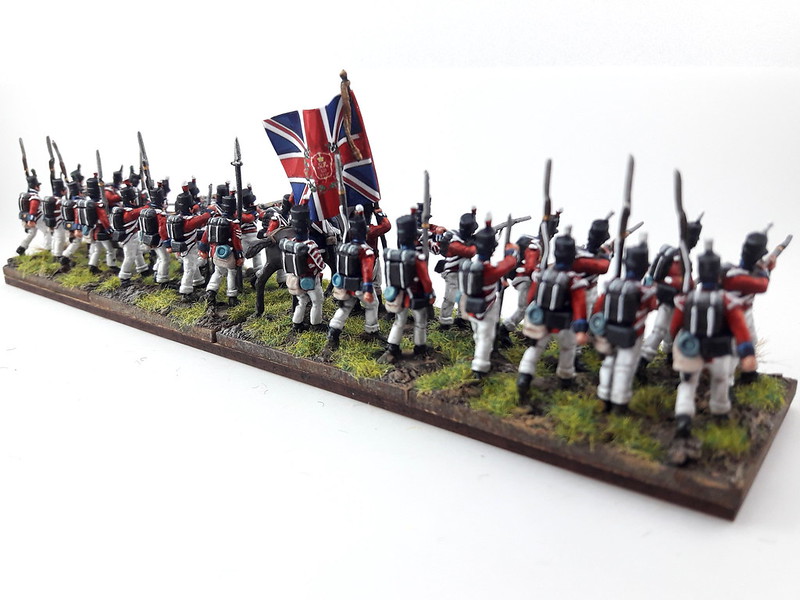We recently played another game of Black Powder at our club, this time I had as opponent a friend that had never played napoleonics before, but was curious about it.
It was a chance to field my russian collection for the first time, commanded by him, while I myself would be in charge of the french. The game consisted of 4 brigades per army, one of each being cavalry.

Above, the french occupy the upper side of the table, deployed in attack columns, relying on their artillery to spread havoc and disorder on the russian formations. Against my best advice, my friend chose to deploy his army mostly in march columns - not a wise approach when you have the french so close by!
Poor command rolls made it difficult for him to change his battalions formations' into line. Meanwhile, the french were advancing fast, with the brigade of Old Guard occupying the centre of the battlefield, under direct command of the Emperor himself. The Guard brigade included my recently painted Guard Chasseurs, which saw action here for the first time.
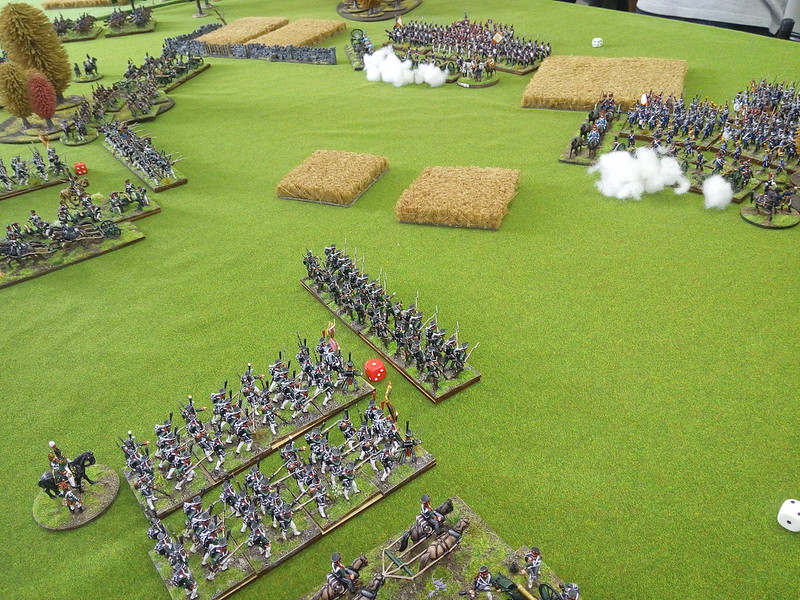
The russians were slowly trying to rearrange their formations, and dispatched the cossacks to try and flank the french centre, but the russian command was really poor, and nothing seemed to get done in time.
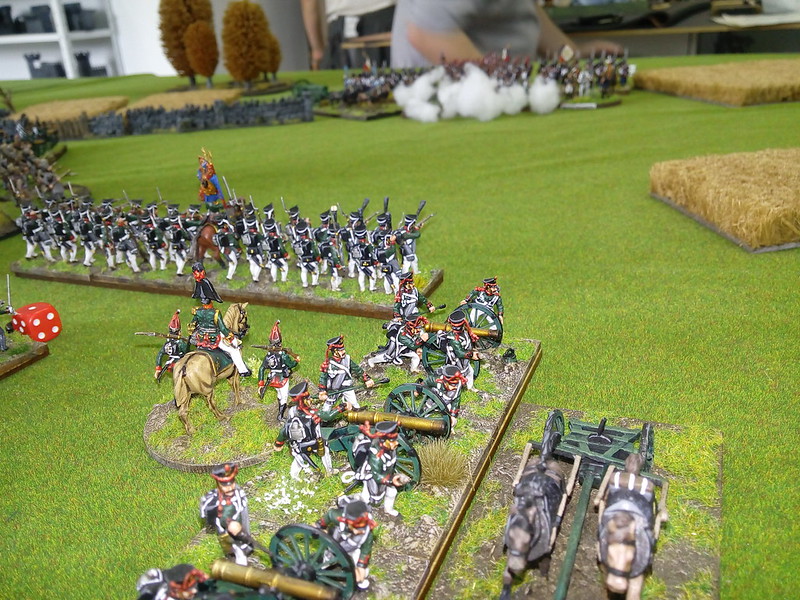
On the russian left flank, the french cavalry were attempting to flank their positions, while an infantry brigade was slowly but steadly marching forward, supported by their guns. The russians stood at the foot of a hill, with their own guns on high ground, and rearranged their lines to deny their flanks to the french horses.
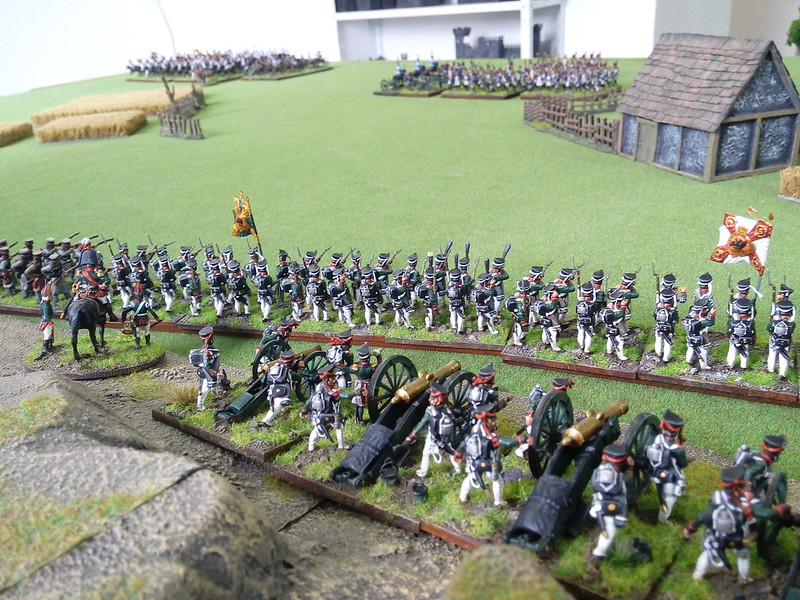
In the middle, Napoleon quickly realised the russian plan to encircle his Guard, and acted swiftly to escape the danger: He pressed his Guard forward to repulse the russian infantry ahead before the russian cavalry were in position to strike his flank.
Here, the abyss between the command effectiveness of both armies proved fundamental once more. The russians struggled to maneuver their horses, while the french quickly marched forward and charged the enemy. The russian line sustained heavy casualties, but resisted the first clash.
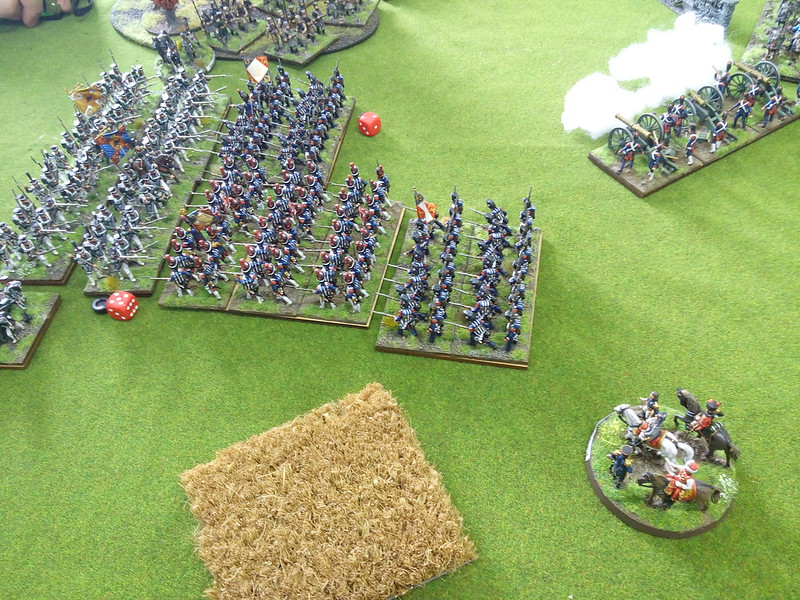
Their resistance, however, was short lived. The Guard insisted on its attack, and the russian lines finally broke. This spread terror among the supporting battalions, and these too fled the field in sight of the advancing Old Guard.
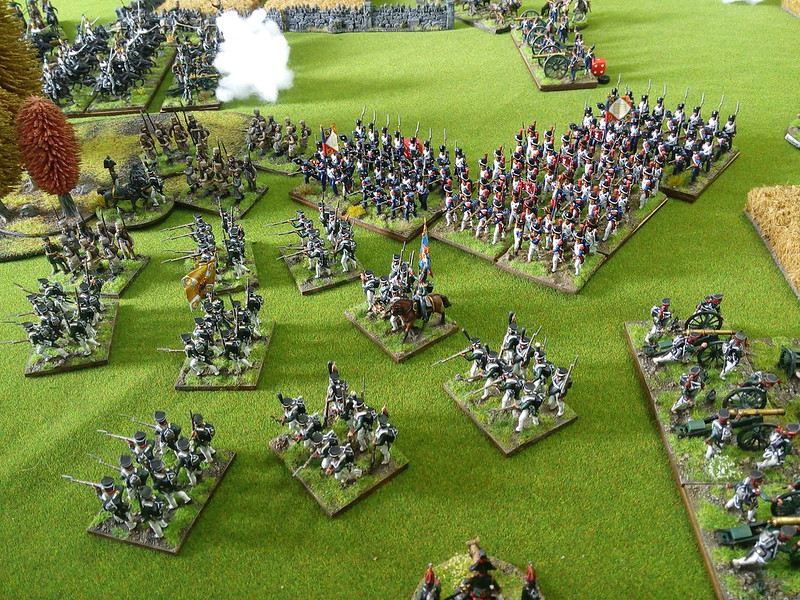
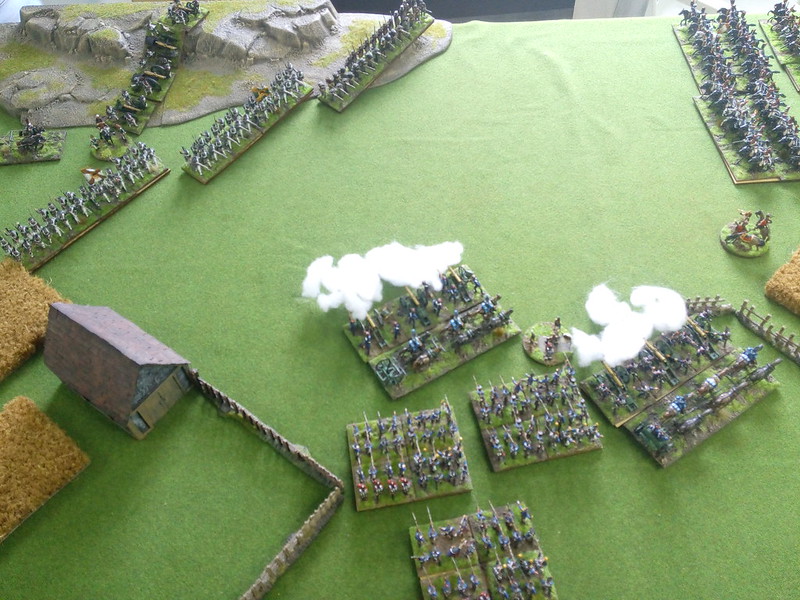
Above, the situation on the russian left flank remains at a standstill. The french cavalry waits for a chance to charge at the russian infantry, but first the artillery must soften the targets a bit.
After destroying the russian centre brigade, the Guard quickly wheels to face the enemy heavy cavalry, which then halts behind their own artillery, realising that their chance for an exploit is gone. The cossacks are also still quite far away, so the russian plan for a simutaneous attack on multiple flanks turns into a disaster.
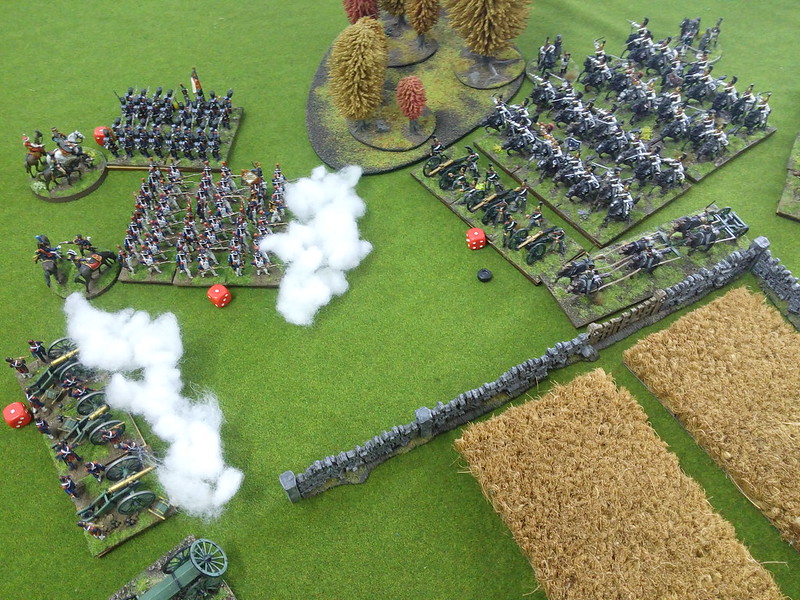
One of the battalions of Guard Chasseurs presses forward and runs over a limbered russian battery nearby , and is then moved to flank the enemy positions, in support to the french forces on the left flank. The french left flank brigade is then sent forward, in a combined attack to smash the russian lines, which find themselves suddenly under attack from their front and from their rear.
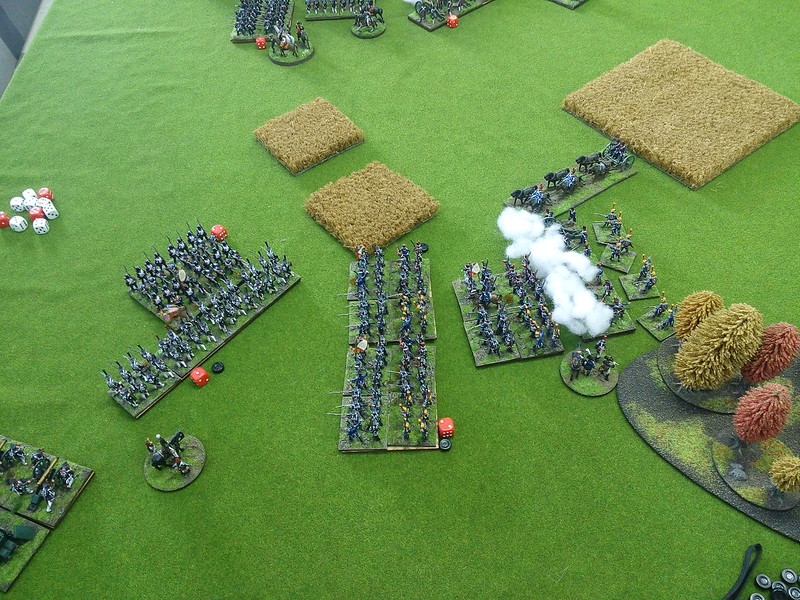
Above, the Chasseurs engage a russian line battalion, which pivoted to its rear to face it, leaving the 2 remaining battalions on its brigade to face the advancing french columns. Those battalions prove unable to resist the french onslaught and are quickly put to flight. The french columns push forward and the last remaining russian formation on their own right flank seems in dire danger of being completely surrounded and obliterated.
With 2 russian brigades destroyed, the Tsar's forces are spent and retreat, leaving the field to the invanding french.
It was a quick and fun game - even for the russian commander, which enjoyed his first game of Black Powder. Hopefully, his bad fortune on this first adventure in Napoleonic wargaming won't keep him from fighting for the fatherland again in the future!
